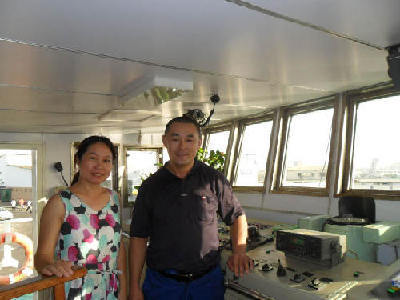Realities and Opportunities – Chinese Private Enterprises in Africa
Zhejiang Province in eastern China has a booming private economy, its merchants having started exploring global markets centuries ago. My team conducted three surveys from November 2011 to July 2012 on local private businesses. The first examined their investment goals and conditions in Africa. The second targeted Zhejiang wholesalers and retailers in Johannesburg, South Africa. And the third was a corporate social responsibility (CSR) survey on Chinese private enterprises investing in Senegal and Nigeria.
We found that most respondents (92 percent) were keen on investing in Africa. Although the majority of enterprises had not yet done so, they intend to invest in manufacturing (45 percent), the property market (17 percent) and agriculture (12 percent) among other sectors.
Intention vs. Reality
There is a huge gap between the African industries that Chinese enterprises intend to invest in and those they are actually involved in. It is most remarkable in the catering industry. Although few enterprises originally intended to invest in this sector, it has actually attracted the most Chinese investment. In contrast, most enterprises expressed intentions to invest in agriculture but none have actually done so. In the case of the property market, 17 percent of enterprises intended to invest but only 3 percent did. And similar statistics are true for the manufacturing industry as well as education, finance and entertainment sectors.
This huge gap shows that, to some extent, certain enterprises with investment intentions may find difficulties in adapting to actual conditions in Africa, for various reasons. It also points to the fact that Chinese enterprises still lack reliable information and detailed feasibility analyses concerning investment in Africa.
In terms of profitability, 62 percent of the surveyed enterprises have performed well or very well, and none are operating at a loss, which indicates it is worthwhile and promising to invest in Africa.
With regard to obtaining information on the African market, 39 percent of enterprises said they collect information through browsing websites. At the same time, 16 percent still gather information mainly through exhibitions, seminars and clients. Information is critical to African investment decision-making. However, if enterprises only collect information individually, costs would be enormous, with most enterprises unable to afford it. Thus, it is necessary for relevant authorities to provide information by organizing (or encouraging enterprises to hold) exhibitions and seminars.
All the Chinese companies we surveyed cited government support as important, prioritizing policies, information and financial assistance. The need for professionals with expertise in the African market ranked fourth.
Social Responsibility
The level to which Chinese private enterprises fulfill their CSR in Africa has caught much of the world’s attention. Our CSR survey analyzed 22 Chinese private enterprises investing in Senegal and Nigeria (11 Chinese SOEs in Africa also included in the comparative survey), as well as 100 Africans from all walks of life. The outcomes are as follows.The average rate of local employees in private enterprises is 85 percent, higher than the 75 percent average among all Chinese enterprises in Africa, and the 55 percent rate for Chinese SOEs. The longer a company stays in Africa and the larger it becomes, the higher its localization rate. The average salary of local employees is not very high, but still higher, or even substantially higher in some cases, than the minimum wage in the host country. Only a handful of companies paid their employees less than the legal minimum wage at first, but provided increases after intervention by local labor authorities. More than half (51 percent) of Africans working for Chinese employers responded citing “good working conditions,” while only 17 percent cited “bad working conditions.”
As for environmental protection, 37 percent of the African respondents thought Chinese enterprises do a good job, while 27 percent believed they don’t. As many as 85 percent of Chinese enterprises provide training for local workers. All in all, 89 percent of the Africans thought Chinese firms have made progress in fulfilling their CSR, manifest in how they have begun to recruit more local people and raise wages and employee benefits.
Based on the evaluations by African respondents, Chinese enterprises scored 60.1 points (out of a total of 100) in the fulfillment of CSR, compared to 56.38 points for Western companies. A total of 96 percent of respondents welcome Chinese investment in their countries, and 95 percent deem China a better development partner than Western countries.
 |
| Liu and a Chinese enterprise manager in Senegal. |
- Are You Ready to Perform?
- Beijing’s Green Courtyard
- China’s CSR on the Global Market Fast Track – An Interview with Xu Zongxiang, vice president of China South Locomotive & Rolling Stock Corporation Limited (CSR)
- China’s Changing Development Pattern
- China Accelerates Transformation of Its Economic Development Model
Services
Economy
- Are You Ready to Perform?
- Beijing’s Green Courtyard
- China’s CSR on the Global Market Fast Track – An Interview with Xu Zongxiang, vice president of China South Locomotive & Rolling Stock Corporation Limited (CSR)
- China’s Changing Development Pattern
- China Accelerates Transformation of Its Economic Development Model
